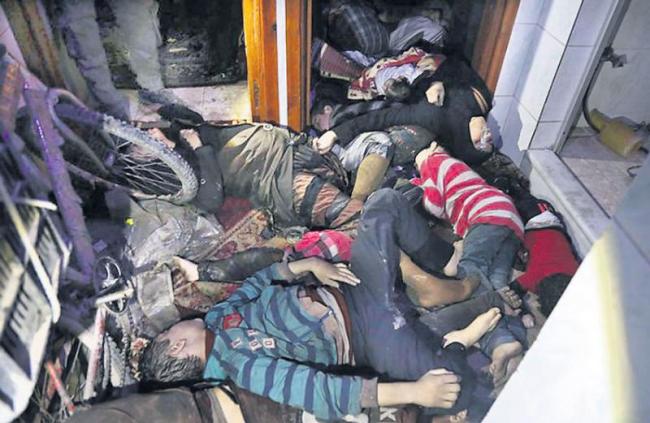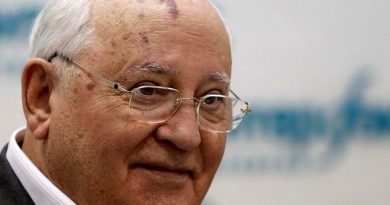Effectiveness of Allied Bombing in Syria Called into Question
By Felipe Bueno
Editor-in-Chief
“President Putin, Russia, and Iran are responsible for backing Animal Assad. Big price…” These words concluded a tweet on April 8 by United States President Donald Trump that affirmed military action against the Assad regime in Syria for its use of chemical weapons.
The chemical weapons attack carried out by the Syrian Armed Forces in the city of Douma resulted in the deaths of 48 civilians, and left hundreds more wounded, reports the Wall Street Journal.
The biggest town in the capital’s suburb of Eastern Ghouta, Douma was victim to the Assad regime’s increased airstrikes following its latest territorial gains in the most recent chapter of its seven-year-long civil war. The attack, coming a full year after the Syrian Armed Force’s last known chemical attack in the town of Khan Sheikhoun, galvanized politicians the world over into action.
Mr. Trump’s eerily worded “big price” manifested itself as a multi-national attack carried out by American, British, and French forces. The attack, which consisted of 105 missiles launched from bombers and naval vessels, sought to target the chemical weapons storage and research facilities that were utilized to carry out the attack on Douma, reports the Wall Street Journal.
The attack, as stated by Theresa May and Emanuel Macron, intended to degrade Syria’s chemical weapons capabilities; chemical weapons the Assad regime was supposed to have relinquished as part of a deal to avert U.S. airstrikes in 2013, says the Wall Street Journal.
On April 14, Mr. Trump praised the attack as having been “perfectly executed” in a tweet. In the same tweet, Mr. Trump went so far as to proclaim “mission accomplished,” a phrase with a troubled past deeply rooted in American intervention in the Middle East.
Mr. Trump’s tweet, an uncanny and perhaps unintentional reminder of previous U.S. failures, does call into question which “mission” Mr. Trump believes was accomplished.
If the goal of the attack, as stated by Ms. May, Mr. Macron, and Mr. Trump, was indeed to limit Assad’s chemical weapons capabilities, it succeeded without question. Its success however, can be called into question if the attack was intended to make significant headway in the allies’ fight against the Russian-backed Assad regime.
How effective was the attack in changing the tide of the war? The allies’ deliberate efforts to only target chemical weapons facilities and avoid conventional weaponry suggests the only true intention was to act as a deterrent against chemical weapons; weapons which are only responsible for 2000 of the 400,000 deaths in the Syrian Civil War, reports the Washington Post.
The allied attack’s long-term contributions to the conflict however, remain dubious. The New York Times reports that the attack was not intended to topple the current regime or increase presence in the area. Assad seems undisturbed following the attack, not even mentioning the destruction of chemical weapons, but instead praising Russian support in intercepting the allies’ missiles, reports the Washington Post.
The attack serves to indicate strong relations between Russia and the “Animal Assad,” in the context of a divided allied coalition, reports the Wall Street Journal. Whether it be Mr. Macron slamming Mr. Trump for his refusal to join the Paris agreement, Ms. May and Mr. Macron on opposing sides of Brexit, or Ms. May and Mr. Trump’s simmering tensions on domestic issues, the allies’ cohesiveness remains uncertain.
Despite their ability to work together on a human rights issue that has near unanimous international consensus, the wests’ future contributions to the Syrian War are questionable given their reluctance for Syrian reconstruction under the Assad regime, says the New York Times.
Additionally, given the aforementioned reluctance towards taking any additional steps towards combating the regime, such as targeting Assad’s conventional weapons systems, the recent attack reads more like an international political stunt than a real effort to end the conflict.



